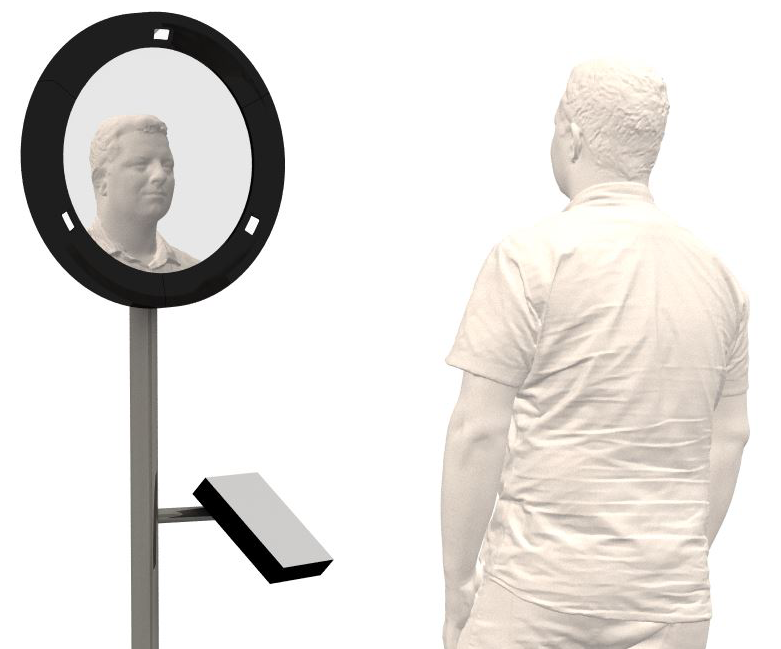Picture Yourself in New Glasses with a 3D Scanning Mirror

Concept art of the 3D scanning mirror design. Courtesy of Sfered.
Latest News
September 26, 2016
Humans have been gazing at themselves in mirrors, with varying degrees of satisfaction, from the time the tale of Narcissus was first spoken. Mirrors are often seen as a sign of vanity, and, in the past, the quality of a mirror was a fair indication of wealth. In addition to home use, mirrors have long been a part of commerce, used by businesses to sell clothing, shoes, makeup and glasses.
The mirrors found in your local eyeglass shop are about to get an upgrade, thanks to the efforts of Fuel3D, a 3D capture and imaging innovator, and eyewear technology developer Sfered. Rather than simply acting as a reflection, mirrors will be fitted with 3D scanning technology to assist with a better fit. The joint venture is at the behest of monoqool, which builds eyeglass frames using 3D printing.
 Concept art of the 3D scanning mirror design. Courtesy of Sfered.
Concept art of the 3D scanning mirror design. Courtesy of Sfered.“When people look into a mirror, they relax, straighten up and focus much more naturally than if they are looking into a camera, which means that the scanner collects more accurate data for custom eyewear fitting,” said Peter Tutuarima, CEO, Sfered. “We have worked closely with the team at Fuel3D to bring this new scanning system to market and we are looking forward to demonstrating the benefits that next-generation facial scanning can bring to the custom fit process.”
Use of facial recognition and scanning technologies are becoming more common in the creation of custom eyeglass frames. The proposed scanning mirror is the first of its kind, and represents a step toward subtle digital integration in a physical setting. According to Sfered, key features include:
- Highly accurate facial scanning that allows opticians to collect all metrics required for fitting of eyewear and production of custom fit eyewear in a single scan.
- High speed 3D capture that collects facial data in 0.1 seconds, allowing data capture of: pupillary distance; nose bridge width; facial width; and distance to ear (for glasses’ arm length data)
- Access to a wide range of frame data held in Sfered’s frames database, allowing opticians to virtually fit frames to customers for an enhanced customer experience.
- An open platform that allows frame manufacturers like monoqool to upload their catalogs for virtual fitting of frames.
Below you’ll find a video from monoqool about 3D printed glasses.
Source: Sfered
Subscribe to our FREE magazine, FREE email newsletters or both!
Latest News
About the Author
John NewmanJohn Newman is a Digital Engineering contributor who focuses on 3D printing. Contact him via DE-Editors@digitaleng.news and read his posts on Rapid Ready Technology.
Follow DE





